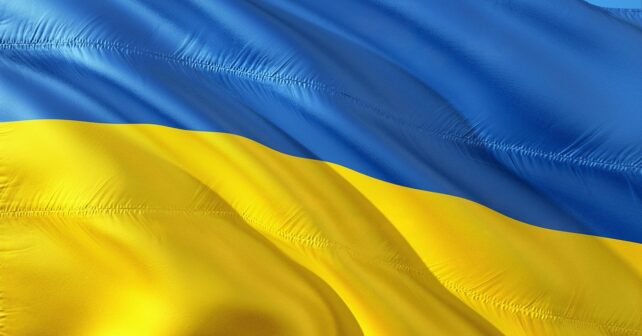
As the world watches the conflict unfolding in Ukraine, emergency physicians on the ground are describing heart-wrenching scenes.
Anton Volosovets, MD, Dr.Sc., head of the department of Emergency Medicine at Shupyk National University of Healthcare of Ukraine in Kyiv, messaged with ACEP leaders via WhatsApp:
“Our babies are [being born] in underground shelters with a risk of collapse. Our children are traumatized forever and do not have [survival necessities], falling asleep under the horrific lullabies of airstrike warning sirens. Our women are crying and praying for survival of their families. Our men are gathering arms and holding the line against the one of the biggest armies in the world, dying for our freedom and freedom of all civilized world.
“Our doctors have [forgotten] the meaning of word “sleep.” They [are] saving lives and dying alongside the soldiers. Cause it appears that for Russians, [the] Red Cross is not a sanctuary – it’s a target mark.”
Neighboring countries, already under the taxing hospital capacity issues of the pandemic, are absorbing floods of Ukrainian refugees. More than 200,000 refugees have arrived in Poland, where Juliusz Jakubaszko, MD, PhD, Immediate Past-President of the Polish Society for Emergency Medicine, is providing updates to epijournal.com.
“Three immediate challenges present themselves in the emergency department,” Dr. Jakubaszko reports to Emergency Physicians International. “One is the language barrier, which we’re working through. Another is the low COVID vaccination rate among Ukrainians. It’s lower than 30 percent. Third, many Ukrainians have poor health and live with chronic illnesses. Plus, they’re tired and stressed. Many of these refugees walked more than 20 kilometers through the night, some with children, to reach the border, due to overcrowded roads.
“I fear what is coming,” Dr. Jakubaszko said. “We can’t imagine what great a challenge the coming days and weeks will bring.”
ACEP Stands with Ukraine
On March 1, ACEP issued a statement in support of emergency physicians working in Ukraine.
“ACEP proudly supports the emergency physician colleagues currently working in Ukraine,” said ACEP President Gillian Schmitz, MD, FACEP. “Emergency physicians across the world make a promise to treat anyone, anytime, and that means during conflict, disaster, pandemic, or any other difficult time. ACEP members are courageously rising to meet the moment and treat patients under extraordinary circumstances and incredible duress.”
From the 2014 Archives: ACEP Ambassador to Ukraine Pens Prescient Article
In a 2014 ACEP Now article, ACEP’s ambassador to Ukraine Brian R. McMurray, MD, FACEP, FACP, described the tense and dangerous situation between Russia and Ukraine. “Ukrainians live in fear for their future as a free country,” wrote Dr. McMurray.
Dr. McMurray lives in Tennessee and is still serving as ACEP’s ambassador to Ukraine, having made 42 trips to the country since 1996. He’s become close with many members of its medical community as they worked together on lectures related to trauma, resuscitation, disaster response and more. He recently spoke with WKRN Nashville about how his heart breaks for his friends in Ukraine who have already been through so much.
Ways to Help Ukraine
ACEP does not organize direct disaster response, but the College and its International Section have extensive resources for physicians who work, or wish to work, in areas where coordinated response to disasters and crises is required across the world. View ACEP’s Global Conflict Resources to learn how to join an international medical response team and to find options for donating money or resources to Ukraine.
Pages: 1 2 | Multi-Page





No Responses to “Updates from EM Physicians in Ukraine and Poland”